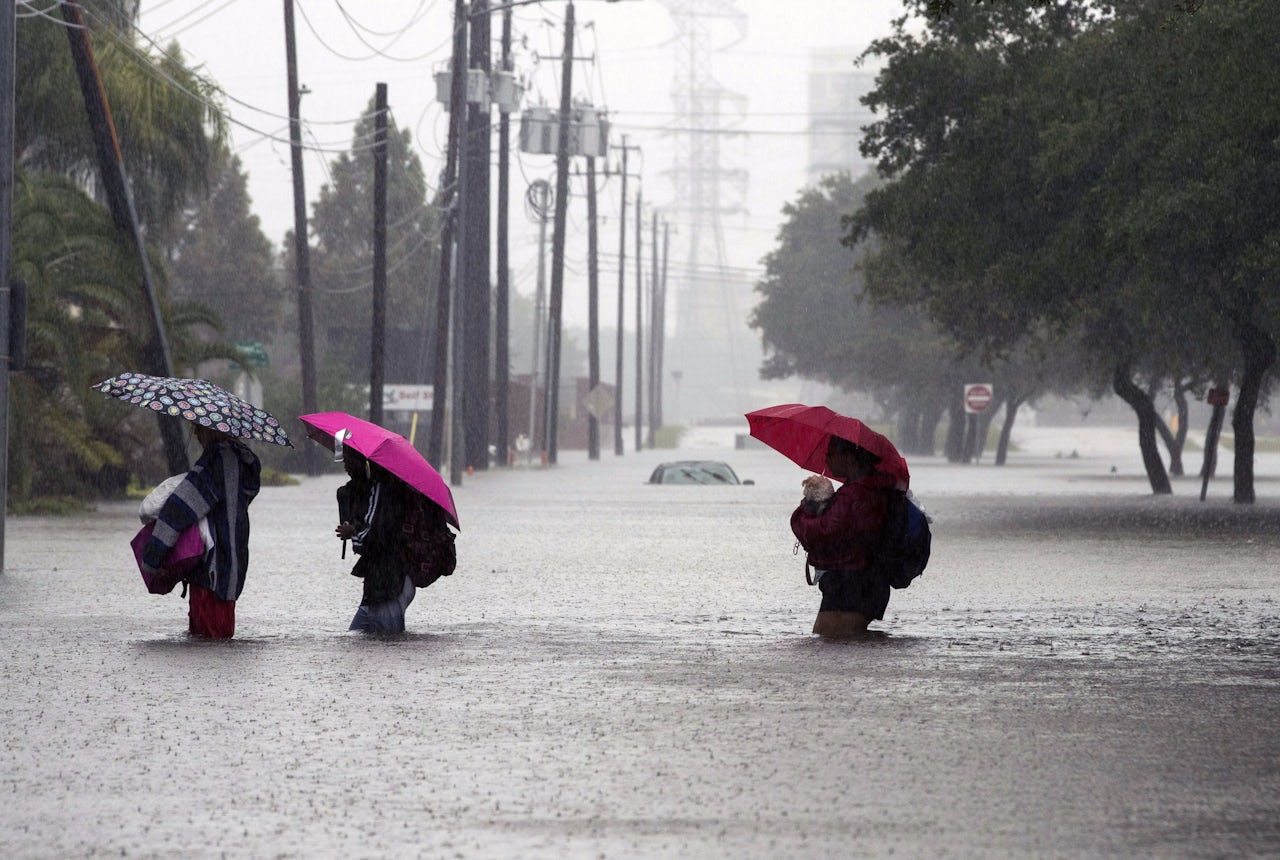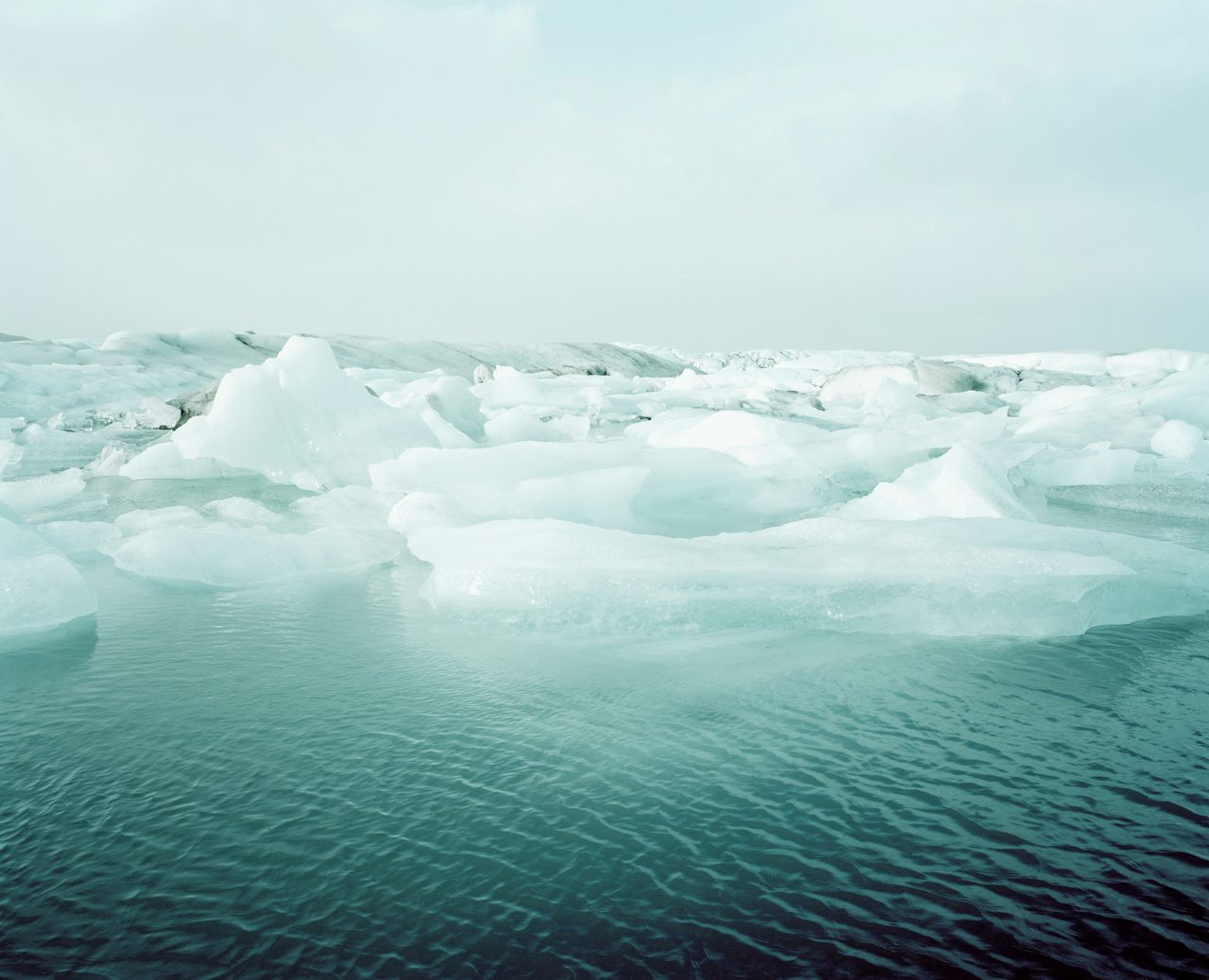I never thought I’d hear the words “climate change” from either of my parents. Growing up in Houston, my family subscribed to a meteorological view prevalent in the Bayou City: that the weather was controlled by God. Houston is home to the nation’s largest church, as well as scores of churches founded by Nigerian immigrants like my parents. As a kid, that echo chamber of belief was a constant source of frustration for me, a devout liberal since the age of nine when an episode of The Simpsons compelled me to become a vegetarian. But sometime last summer, with record-high temperatures scorching the city and even the slightest bit of rain flooding the freeways, things changed. “They say this climate change is really going to start affecting people,” my dad told me over the phone. I almost didn’t know what to say.
Now the city is faced with what could end up being one of the worst floods in its history, with experts predicting rains that top Tropical Storm Allison, which hit the Houston area in 2001 and caused $5 billion in damages. Hurricane Harvey made landfall Friday night and actually missed much of the city by several miles, but the rains that it brought were enough to overwhelm a crippling infrastructure made worse by depleted prairies. In the years since Allison, roughly 167,000 acres of prairie land, which scientists say play a crucial role in soaking up rainwater, have been paved over to make way for what seems like an endless assortment of strip malls and McMansion-filled neighborhoods. I remember coming home during holiday breaks from college, astounded by how much kept getting built. Driving along Highway 6, a winding stretch of road that cuts around the western outskirts of the city, the housing explosion that has taken root in metropolitan regions around the country appeared to be in overdrive. Signs dot the roads advertising two-story homes starting at $120,000. The logo for Perry Homes, the construction firm founded by the late ultra-conservative Republican donor Bob Perry, is ubiquitous.
Houston’s expansion fits the same religious narrative I balked at as a child. God had chosen the city to be prosperous, He wants all of his children to succeed, and this land, furnished with oil and sheer abundance, is His gift. It’s a viewpoint that plays well into the hands of business interests set to profit from the city’s unmitigated growth. And many city and state officials seem happy to go along with it. Speaking with The Texas Tribune last year after a summer of record floods, Mike Talbott, the longtime head of the state government agency in charge of reducing effects of flooding, called the claims from scientists that prairies soaked up flood water “anti-development.”
“They [scientists] have an agenda ... their agenda to protect the environment overrides common sense,” he said.
The images from the aftermath of Harvey are harrowing. Entire neighborhoods have been overwhelmed with water, and tales of families trapped on their roofs and pregnant women being rescued by helicopter are shared with frightening regularity on social media. Earlier today, Houston Mayor Sylvester Turner said that the hurricane was “going to cost a great deal, in so many different levels, the emotional cost this storm is having is hard to measure." The rain hasn’t let up either. Some are predicting that there will be areas of the city that receive 60 inches of rain, something scientists previously believed to be virtually impossible.
Watching the storm unfold from afar, I felt the frustration that defined my adolescence. I found myself internally shaking my fist, screaming “Invest in public goods! Green spaces, dammit!” As I checked on my family over the weekend, I couldn’t help but talk about climate change. They were more concerned, of course, with its more immediate effects, like the water gushing through the first floor of our house.
It’s not so much that I feel the sort of liberal elitism that has compelled people to dismiss the entire state of Texas because it voted for Trump. That’s stupid. I’m mad at Texas because I’m scared as hell for my family and the place that I grew up. Houston is a city in which an entire neighborhood of immigrants from Africa can exist and prosper, building mega-churches that draw crowds as big as white churches. It’s where the high school I went to is a literal case study on diversity, and where one of the first openly gay mayors of a major city was elected. It is a confounding place where the heavy hand of conservative politics looms large, but where opportunities loom larger. Climate change is real, and I’m frightened that it’s going to wipe out one of the only places where the American dream is, too.



